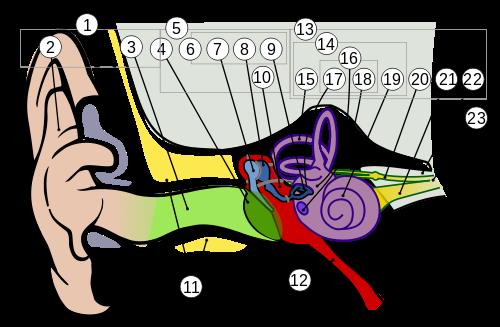Before I knew I had any sort of thyroid issue, I started to have to swallow when going up or down hills. I don't mean mountains, but maybe a hundred to two hundred feet elevation.
Now that I have been on a decent dose of levothyroxine for some time, I hardy ever have to swallow to clear my ears, even on much greater hills. Only on the very odd occasion - which seems to happen to most people.
It is always good to see doctors/researchers catching up...
J Craniofac Surg. 2014 May 2. [Epub ahead of print]
Tympanometric Changes and Eustachian Tube Function in Patients With Hypothyroidism.
Orhan I1, Palit F, Aydin S, Soylu E, Sakallioglu O.
Author information
1From the Departments of *Ear Nose and Throat and †Internal Medicine, Istanbul Medipol University, Istanbul; and ‡Training and Research Hospital Department of ENT, Elazıg, Turkey.
Abstract
OBJECTIVE:
The aim of this study was to investigate the tympanometric changes and eustachian tube function (ETF) in patients with hypothyroidism.
METHODS:
Automatic ETF tests were performed and tympanometric measurements were evaluated to assess ETF in 40 patients diagnosed with hypothyroidism and a 40-patient euthyroid control group. Levothyroxine sodium tablet treatment was started in patients with hypothyroidism. After achieving a euthyroid state in these patients, the tympanometric measurements and automatic ETF tests were repeated.
RESULTS:
When the patient groups (hypothyroid and control) were compared in terms of ETF, a statistically significant ET dysfunction was observed in the hypothyroid patient group (P < 0.01).When hypothyroid patients were evaluated in terms of ETF before and after treatment, whereas 61.3% of cases had ET function before treatment, this ratio increased to 78.8% after treatment. Furthermore, according to pressure and compliance measurements, statistically significant increases were found in the after treatment measurements (P < 0.05).
CONCLUSIONS:
As a result of this study, we have come to the opinion that hypothyroidism can change tympanometric measurements and also cause ET dysfunction. However, more comprehensive and detailed studies researching the effects of hypothyroidism on tympanometric measurements are needed.
PMID: 24799097 [PubMed - as supplied by publisher]
ncbi.nlm.nih.gov/pubmed/247...
See also:
en.wikipedia.org/wiki/Eusta...
en.wikipedia.org/wiki/Tympa...
Rod


